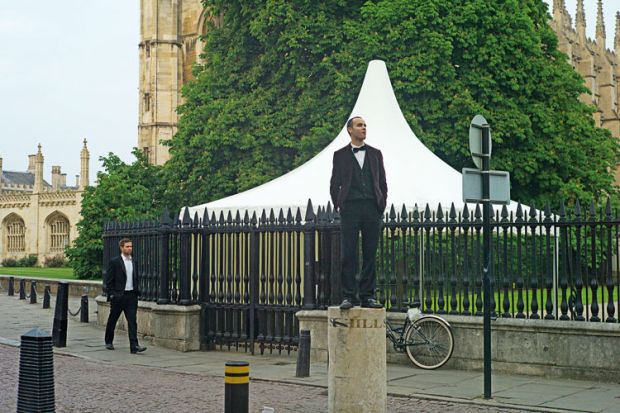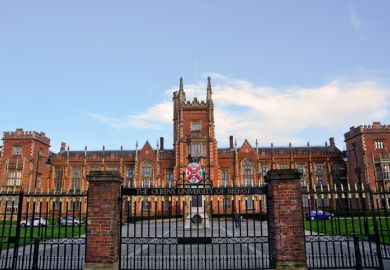Research using a major survey of social class in the UK is billed as capturing the first large-scale evidence on “the close association between being in the elite and attending an elite university”.
Social Class in the 21st Century, published this month, uses data from the Great British Class Survey (GBCS), which gathered information about economic, cultural and social capital from 160,000 respondents.
The survey, designed by Mike Savage and Fiona Devine, professors of sociology at the London School of Economics and University of Manchester respectively, broke down society into seven classes ranging from “elite” to “precariat” according to their levels of different types of capital.
Paul Wakeling, senior lecturer in the department of education at the University of York, analyses results on higher education backgrounds and social class from 80,000 graduate respondents as lead author of a chapter of the book, titled “A tale of two campuses: universities and meritocracy”.
He told Times Higher Education that the GBCS “allows us to look at what’s happened to [graduates] from different universities in a way that’s not been possible in the past”.
In one graph, Dr Wakeling looks at the social class of graduates, aged from 35 to 50, who attended universities in the cities of Bristol, Cambridge, Manchester, Oxford and Sheffield.
For each place, the social class of the Russell Group university’s graduates were compared with those from the post-92 institution in the city.
Dr Wakeling writes that in each city, “graduates of the older, more traditional university are much more likely to be in the elite than graduates of the neighbouring, newer university”.
He continues that the “contrast is particularly stark in Cambridge, where more than half of the University of Cambridge’s graduates are in the elite, compared to just one-eighth of those at Anglia Ruskin University”.
The contrast is smallest in Sheffield.
Dr Wakeling says: “The close association between being in the elite and attending an elite university is not unexpected, but it is the first time that this has been captured on such a large scale.”
Ten universities have 35 per cent or more of their graduates in the elite, a proportion that “then falls away sharply” among the universities outside the top 10.
Dr Wakeling finds that the six institutions commonly seen as being the “golden triangle” of the most prestigious institutions – Oxford, the London School of Economics, Cambridge, King’s College London, Imperial College London and University College London – are all in the top 10 for proportion of graduates in the elite.
“Graduates from a small group of the most prestigious universities are disproportionately represented in the elite,” he writes. “Expansion of higher education is not sufficient to break this pattern and to some extent may have reinforced it.”
The results also show “the apparent power of the London institutions over those outside the south-east,” writes Dr Wakeling, with London Metropolitan University 32nd in the GBCS elite graduate table and “above many higher-status universities outside London”, for example.
He told THE that the research showed the “critical importance of getting access right and trying to ensure we have meritocratic access to universities”.
But he also argued that if graduates from a very small number of universities “get these exceptionally high rewards that’s not good for society”.
POSTSCRIPT:
Print headline: Large-scale study links being in elite with elite institutions
Register to continue
Why register?
- Registration is free and only takes a moment
- Once registered, you can read 3 articles a month
- Sign up for our newsletter
Subscribe
Or subscribe for unlimited access to:
- Unlimited access to news, views, insights & reviews
- Digital editions
- Digital access to THE’s university and college rankings analysis
Already registered or a current subscriber?




